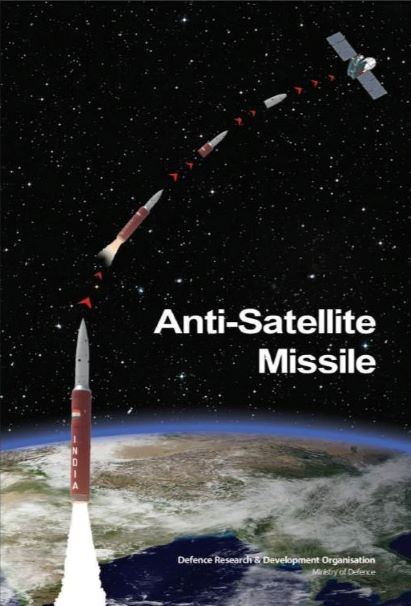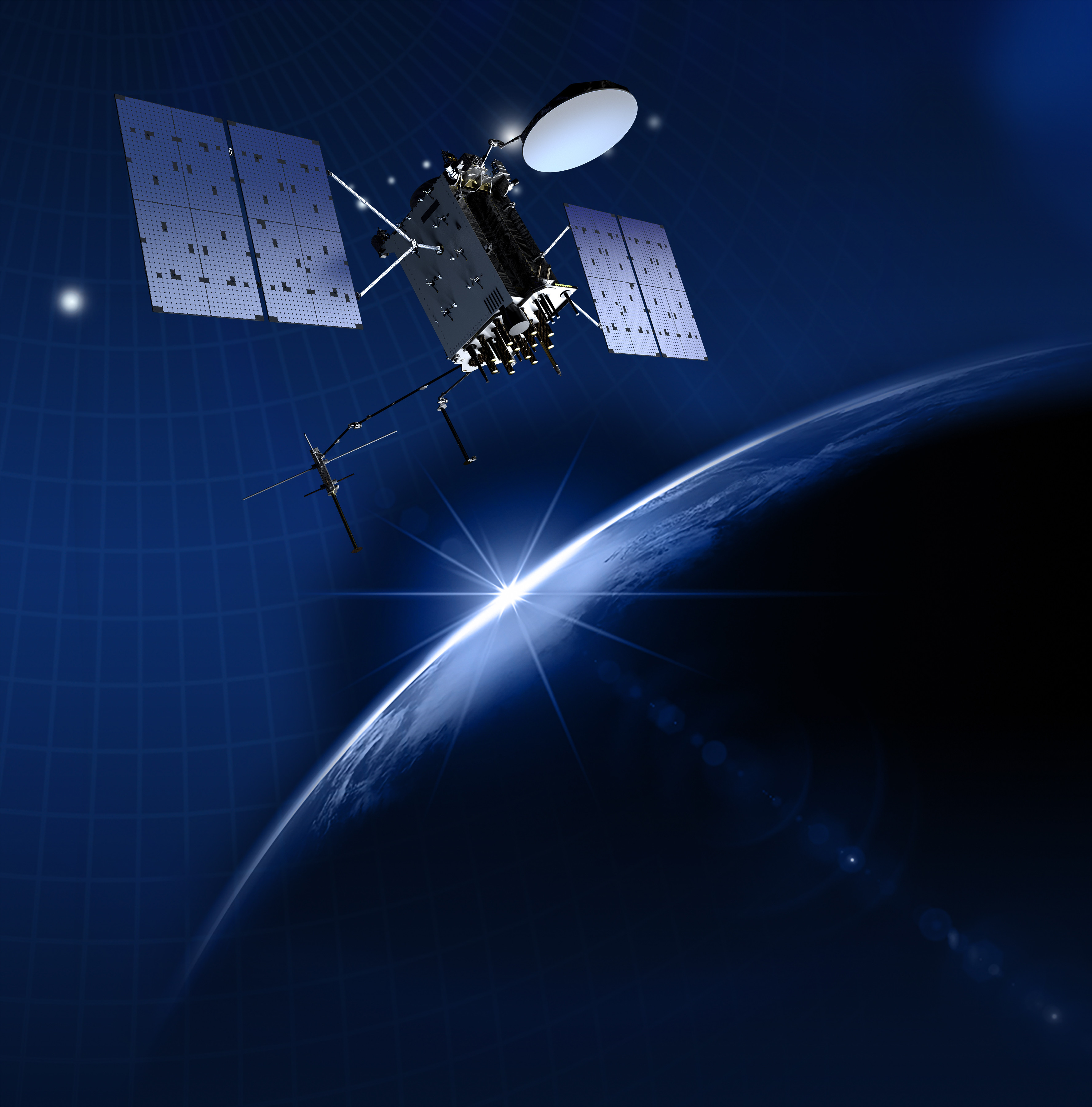Is war in space inevitable?

Get the world’s most fascinating discoveries delivered straight to your inbox.
You are now subscribed
Your newsletter sign-up was successful
Want to add more newsletters?

Delivered Daily
Daily Newsletter
Sign up for the latest discoveries, groundbreaking research and fascinating breakthroughs that impact you and the wider world direct to your inbox.

Once a week
Life's Little Mysteries
Feed your curiosity with an exclusive mystery every week, solved with science and delivered direct to your inbox before it's seen anywhere else.

Once a week
How It Works
Sign up to our free science & technology newsletter for your weekly fix of fascinating articles, quick quizzes, amazing images, and more

Delivered daily
Space.com Newsletter
Breaking space news, the latest updates on rocket launches, skywatching events and more!

Once a month
Watch This Space
Sign up to our monthly entertainment newsletter to keep up with all our coverage of the latest sci-fi and space movies, tv shows, games and books.

Once a week
Night Sky This Week
Discover this week's must-see night sky events, moon phases, and stunning astrophotos. Sign up for our skywatching newsletter and explore the universe with us!
Join the club
Get full access to premium articles, exclusive features and a growing list of member rewards.
Here on Earth, the air, land, and sea are zones of conflict, clashes and combat. There is a growing perception that next up is the ocean of space, transformed into an arena for warfare.
There is ongoing chatter regarding military use of space by various nations. The freshly established U.S. Space Force, for instance, is busily shaping how best to protect U.S. and allied interests in the increasingly contested and congested space domain.
What conditions could lead to clashes in space? Is such a situation a given, or can conflicts be short-circuited ahead of time? Could nations "slip into" off-planet muscle-flexing, quarreling and actual warfighting in space that might spark confrontation here on terra firma?
Space.com contacted several leading military space and security experts, asking for their opinions on the current status of the militarization of space.
Related: The most dangerous space weapons ever
Pass interference
The term "warfare in space" could entail things that are already taking place, said Mark Gubrud, an adjunct assistant professor in the Curriculum in Peace, War & Defense at the University of North Carolina, Chapel Hill. He pointed to jamming satellite communications, laser dazzling of photo-snapping satellites, hacking systems to selectively block or eavesdrop on phone or data streams, and probing systems to see if they can be hacked.
"While the full extent of such activities may not be known, they appear to occur sporadically up to now," Gubrud said. According to some reports, he said, the U.S. and perhaps others have made extensive use of the ability to intercept and interfere with commercial telecom traffic, though this is an asymmetric capability of major powers that presents little risk of escalation.
Get the world’s most fascinating discoveries delivered straight to your inbox.
Gubrud said that all of these forms of harmful interference could potentially lead to escalation risks as they are more widely and commonly practiced and as adversaries develop reciprocal capabilities.
"Therefore, we should build on the United Nations Outer Space Treaty with a further treaty that bans all forms of harmful interference and weapons for causing interference," he said.
Absence of binding commitments
The greatest danger will arise from a massive proliferation of Earth-based anti-satellite systems that are able to affect spacecraft in geosynchronous orbit and beyond, or the pre-deployment of various types of such weapons in space that would allow them to reach their targets within minutes or seconds, rather than hours, Gubrud said.
"Here the potential for rapid escalation becomes a severe threat to nuclear stability, as the main confronting powers would almost certainly be the US, Russia and China," he said. The only good news here is that this hasn't happened yet, he added, probably because there is enough recognition of how dangerous it would be.
"So really, the path to war in space is a space arms race, one that has long been postponed but that is only made more imminent and potentially explosive as technology advances in the absence of binding commitments to space arms control," Gubrud concluded.
Tailgating
Space is already weaponized by dual-use robotic spacecraft serving as weapons to disable our satellites, said Brian Chow, an independent policy analyst with over 25 years' experience as a senior physical scientist specializing in space and national security.
"Because their peaceful uses are important to space prosperity, they should not be banned," Chow said. "Actually, we can accept some rules and measures so that we can enjoy the benefits of these spacecraft and prevent them from harming our satellites at the same time."
Chow senses that the present problem is that the international community has not prohibited spacecraft, whether peaceful or hostile, from staying arbitrarily close to satellites operated by another nation. An adversary is not prevented from placing its dual-use spacecraft close to our satellites in peacetime.
"Once these spacecraft are in place, mounting attacks from such a close range would give us insufficient warning time to fashion a defense and save our targeted satellites," Chow told Space.com.
The international community is ambiguous about whether a nation is allowed to tailgate another country's satellites, Chow said. Also, the current U.S. national security space strategy is ambiguous about preemptive self-defense, including when it faces a threat from space stalkers, he said.
Related: 2 Russian satellites are stalking a US spysat in orbit, and the Space Force is watching
Dangerous ambiguities
The uncertainties surrounding preemption and stalking are dangerous, Chow said. For instance, China could reason that space stalkers would be the best type of anti-satellite system, because it would present the United States with two bad choices.
"First, the United States could preemptively destroy the space stalkers to save the targeted satellites so as to maintain space support to military operations during crisis and war," Chow said. "However, without discussing and resolving these two ambiguities with the international community in peacetime, the United States could be condemned as the aggressor who fired the first shot, which led to a war in space possibly spreading to Earth — something both sides tried to avoid," Chow said.
Secondly, Chow said that the United States may not be able to fight effectively without the support of some critical satellites.
"Facing these two bad choices, the United States might end up not intervening at all. This would be the perfect outcome for China, as it prevented U.S. intervention without firing a single shot," Chow said. "If we keep using the current space policy without necessary and needed changes, the U.S. and other nations could 'stumble into' such conflicts."
Related: Military Space: Spacecraft, weapons and tech
Lose-lose proposition
"I'm not a huge believer in inevitability," said Wendy Whitman Cobb, an associate professor of Strategy and Security Studies at the U.S. Air Force School of Advanced Air and Space Studies at Maxwell Air Force Base in Montgomery, Alabama. "Analysts have constantly been saying that attacks and weapons in space are inevitable and right around the corner since the 1960s."
It has long been recognized, said Whitman Cobb, that one country attacking a satellite of another is a lose-lose proposition for those concerned.
"Not only would the space environment be cluttered with debris making it harder to operate there, but it would be open season on all satellites including their own," she said. "Because of the stability that monitoring from space gave to the nuclear arms race, it was just better to allow satellites to freely operate rather than threaten your own strategic position."

Economic repercussions
The flourishing commercialization of space and the global economy's reliance on space-based systems makes open conflict in space very costly, as Whitman Cobb points out in her recent book, "Privatizing Peace: How Commerce Can Reduce Conflict in Space" (Routledge, 2020).
"It only takes one piece of debris to take down a satellite through which financial transactions and key communications are routed. The wrong satellite could have significant economic repercussions that would not be isolated to one country alone," Whitman Cobb said. "Thus there should be both strategic and economic considerations that restrain countries in their use of weapons in space."
That said, Whitman Cobb added that it is still possible for states either to stumble into conflict or to have conflict be initiated by rogue states like North Korea or Iran. The electromagnetic pulse from a detonating nuclear device, for example, would quite quickly and easily take out all satellites in the vicinity.
"It's certainly a non-discriminatory weapon, but, backed into a corner, it's not far out of the realm of possibility for North Korea or Iran," she said.
Because of the dual nature of space technology and the inherent secrecy involved, there's a significant chance of misperception, Whitman Cobb said, stressing that misunderstandings of not just technology but also intent could easily lead to conflict. (Her views are her own, based on open source, unclassified information and are not representative of the Department of the Defense or the Air Force.)
Chest thumping
There is a lot of talk that space is now weaponized, so the attitude in certain quarters is that the U.S. would be remiss to not "keep up," said Joan Johnson-Freese, a professor of national security affairs at the Naval War College in Newport, Rhode Island.
"Dual-use technology has meant that there have been 'potential' space weapons around for at least a decade, but now we are moving, if not running, toward the overt weaponization of space," Johnson-Freese said. She thinks what might be going on relates to putting some parameters around the Space Force mission to organize, train and equip.
"That can be broadly defined — as the Trump Administration seemed inclined to do — or reined in a bit to abate some of the chest-thumping, warfare-fighting connotations given to its creation, some of which Space Force has since perpetuated," Johnson-Freese added, noting that her views are her own and not those of the Department of Defense, Department of the Navy, nor the Naval War College.
Perhaps the Biden Administration will tone down the chest-thumping rhetoric. But should technology development and war fighting plans continue?
"Yes, I think that's inevitable. I also think, however, that without some measure of accompanying space diplomacy, there is a distinct danger of space war of some sort being a self-fulfilling prophecy," said Johnson-Freese. "I would like to see a major effort by this new administration in space diplomacy, specifically toward transparency and confidence building measures."
Leonard David is author of "Moon Rush: The New Space Race," which was published by National Geographic in May 2019. A longtime writer for Space.com, David has been reporting on the space industry for more than five decades. Follow us on Twitter @Spacedotcom and on Facebook.

Leonard David is an award-winning space journalist who has been reporting on space activities for more than 50 years.
 Live Science Plus
Live Science Plus












